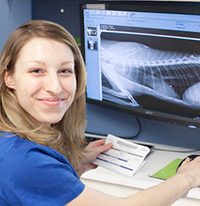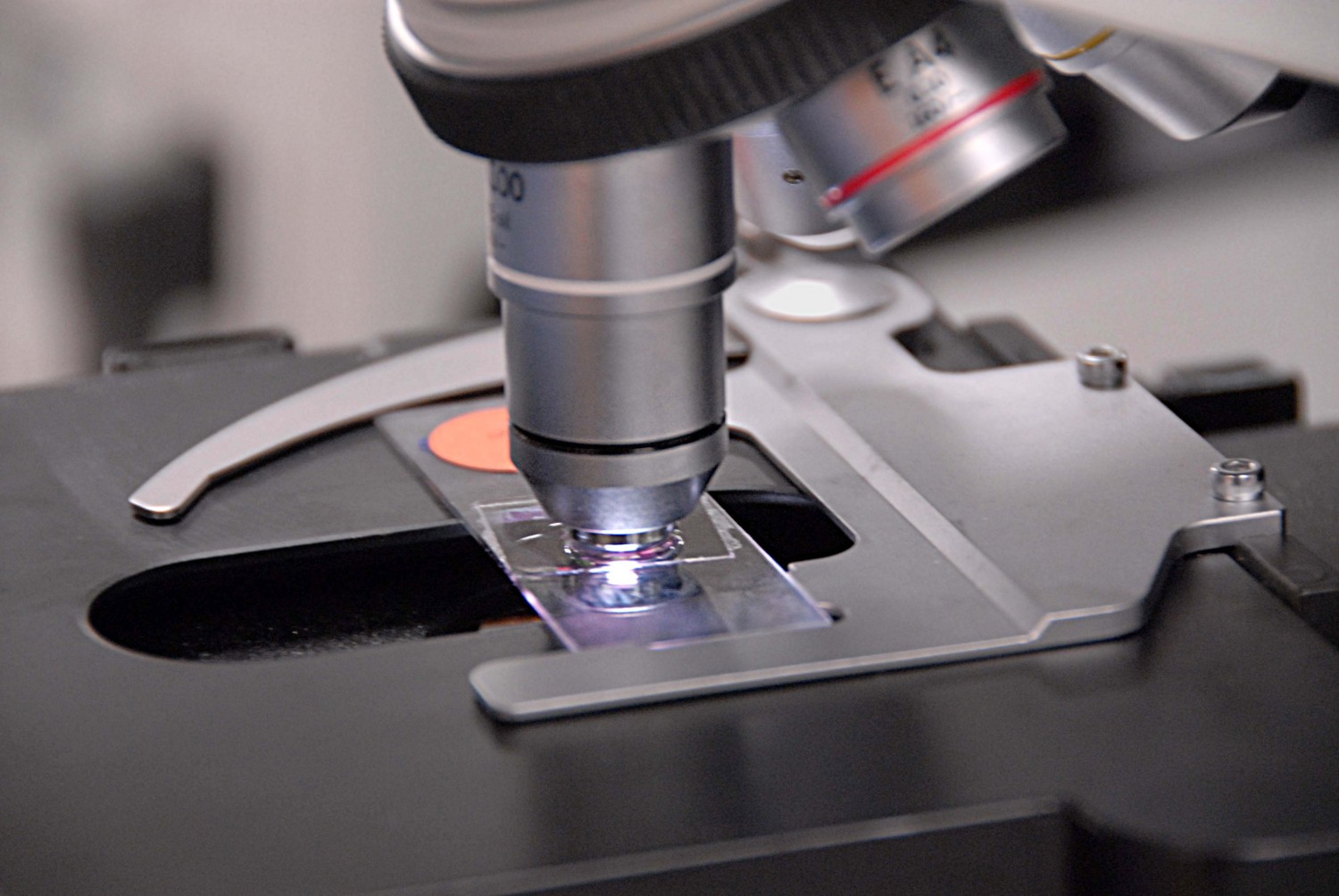|
Diagnostic Services
|

|
Digital Radiography
At Greenpoint Veterinary Hospital, we use the latest in advanced digital radiology as part of your pet's diagnostic care.
Radiographs (or x-rays) are one of the most important diagnostic tools in veterinary medicine. They allow us to view the shape, size, and location of organs inside your pet's body. X-rays are useful for examining your pet's bones, lungs, heart, abdomen, oral cavity, and other areas of the body, as well as for diagnosing and monitoring many medical and surgical conditions. An x-ray can detect a fractured bone, tumor, or heart problem and locate an obstruction or foreign body in your pet's stomach or intestine. X-rays and ultrasound are often utilized together for an even more accurate diagnosis.
Greenpoint Veterinary Hospital operates a state-of-the-art, digital x-ray machine. Compared to x-rays produced by a traditional machine, the quality of digital radiographs is significantly better. Our digital x-ray technology produces clear, detailed images that allow our medical team to make a more rapid and accurate diagnosis. Because digital x-rays are immediately displayed on a computer monitor, they are produced quickly and can be manipulated to get a better view of your pet's bones and internal organs.
Digital radiology has many benefits for your pet, you, and our staff. Digital x-rays are easier and faster to process than traditional x-rays, resulting in less time on the x-ray table and less stress for your pet. The harsh chemicals once necessary for developing x-ray film are not needed for digital x-rays, reducing potential harm to our staff and the environment.
Because digital x-ray images can be saved on a computer, they can be transmitted quickly by email to outside specialists if a referral or second opinion were necessary.
|
|
|
|
|

|
In-House Laboratory
Performing preventative medicine, as well as diagnosing emergent internal health issues, requires the ability to perform a wide range of laboratory tests on blood, urine, feces, and biopsied tissue. Without timely access to precise laboratory test results – blood testing, biopsies, microscopic examinations, bacterial culture sensitivity, and more – it is difficult to make an accurate diagnosis or assessment of your pet's health.
Greenpoint Veterinary Hospital has a complete in-house laboratory. In many cases, our sophisticated instruments and diagnostic capabilities allow us to receive results within minutes.
Laboratory testing allows our veterinarians to obtain additional information to assess your pet's overall systemic health without the need for invasive and expensive procedures. This is why we maintain an advanced in-house laboratory and regularly perform tests during your pet's wellness exams or when we suspect your pet may have a health issue.
For example, diagnostic testing can detect heartworm disease, Lyme disease, infections, feline leukemia, intestinal parasites, urinary tract infections, and many additional diseases and conditions that can go unnoticed in their early stages. Early blood testing can show evidence of disease such as diabetes, changes in liver or kidney function, or simply provide a baseline for future reference. Diagnostic testing is also included in pre-anesthetic screenings prior to dental or surgical procedures that require general anesthesia. Annual wellness blood and urine tests, along with other diagnostics, assist our veterinarians in the early detection of diseases and health conditions.
|
|






